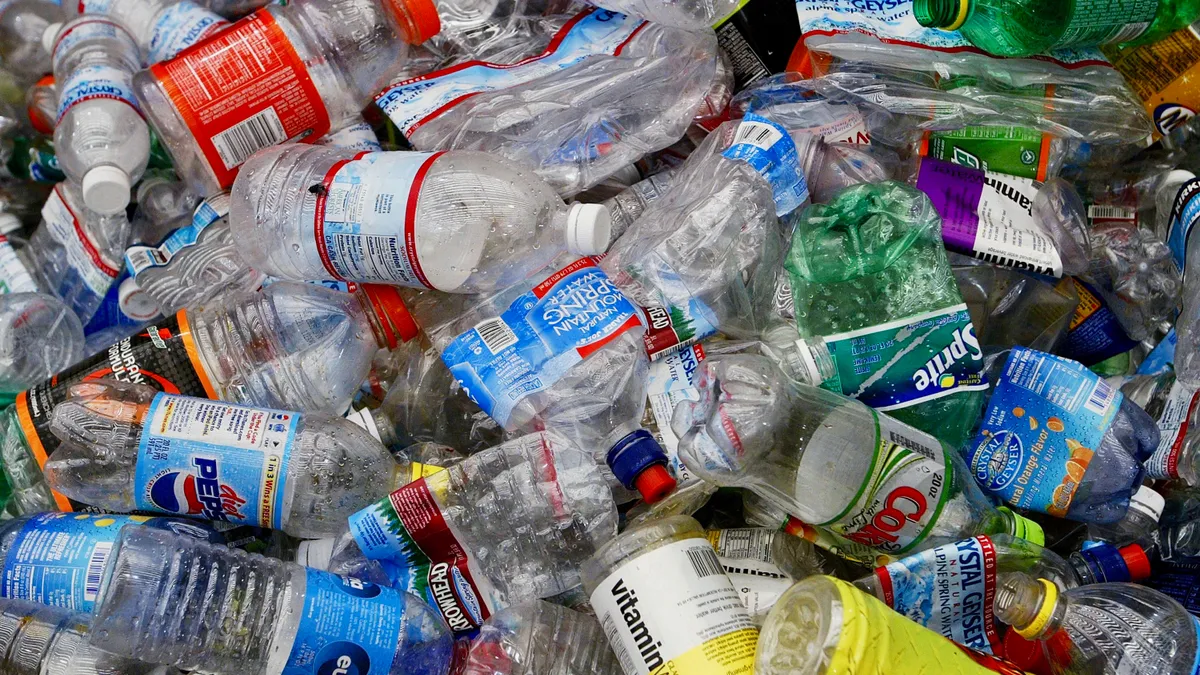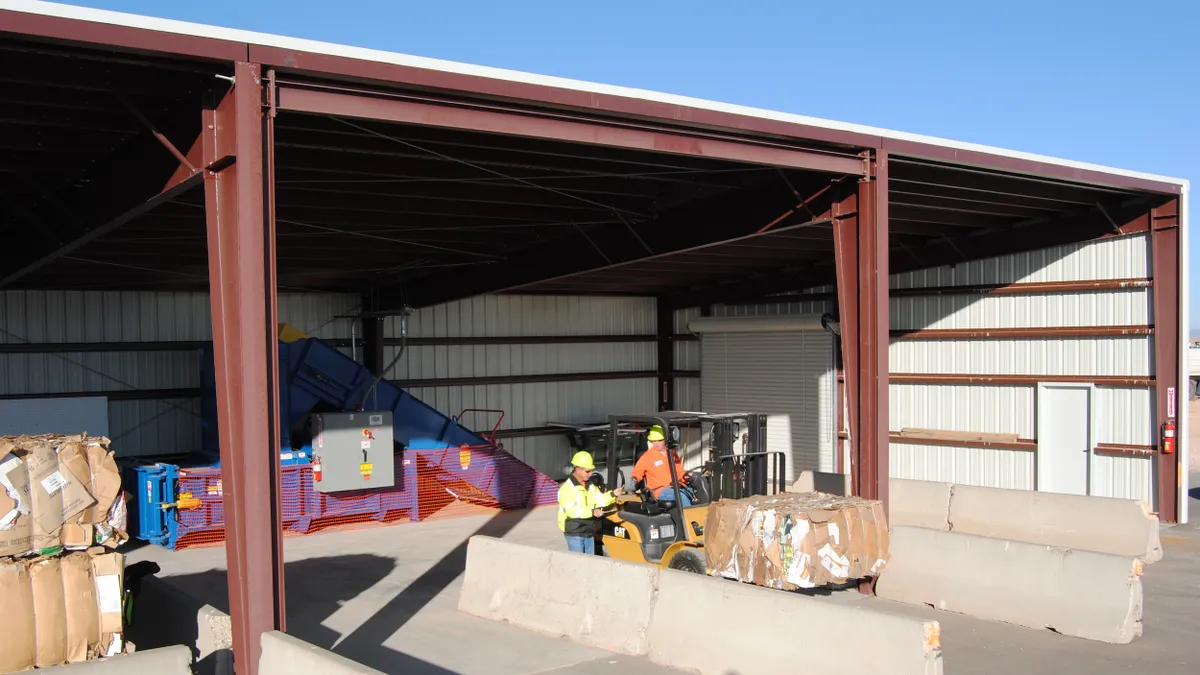Dive Brief:
- California has chosen Circular Action Alliance as its producer responsibility organization, a significant step in its efforts to implement its extended producer responsibility program for plastic packaging under SB 54.
- CalRecycle announced CAA as the sole PRO on Jan. 8, just a week after the deadline for applications closed. CAA is comprised of 18 major companies, including the Coca-Cola Co., Keurig Dr Pepper, General Mills, Procter & Gamble, Nestlé and Unilever.
- The next step is for CalRecycle to announce dates for its public comment period on draft SB 54 rules released in December. It also plans to hold a public workshop on Feb. 13 on the preliminary findings report on SB 343, a related law covering recycling claims on packaging.
Dive Insight:
CalRecycle’s selection of CAA shows the PRO’s growing influence in U.S. EPR for packaging implementation. The PRO has said it aims to become an approved PRO in each state that enacts EPR laws for paper and packaging, and it has already been named Colorado’s PRO. In October, CAA was also named the sole PRO on Maryland’s EPR advisory council, possibly setting it up to become the PRO for a potential future packaging EPR program once the advisory council develops recommendations on a proposed EPR plan later this year.
In California, CAA’s job will be to help plastic packaging producers meet the requirements of SB 54, the sweeping EPR bill that passed in 2022. The law will require cutting single-use plastic in packaging by 25% and recycling 65% of it by 2032, as well as making all packaging recyclable or compostable. Producers will pay about $5 billion over 10 years as part of the program and will need to join or pay into the PRO by Jan. 1, 2027, or make payments directly to the state.
A CAA representative will now have a non-voting seat on CalRecycle’s SB 54 advisory board, along with existing members such as Waste Connections, the California Product Stewardship Council, the Del Norte Solid Waste Management Authority and others.
“CAA will continue to participate in the regulatory process as CalRecycle starts its formal rulemaking and to reach out to producers to build awareness and understanding of the law and prepare them for compliance,” said Olivia Barker, a spokesperson for CAA.
Charlie Schwarze, CAA’s board chair and the senior director of sustainability at Keurig Dr Pepper, said in a statement that the food, beverage and consumer goods companies represented in the PRO aim to “deliver harmonized best-in-class compliance services, scale innovation, and build systems that help both companies and consumers waste less and recycle more.”
CAA also intends to submit an EPR program plan to become a PRO in Oregon, a state that will allow multiple PROs and is expected to accept PRO applications through the end of March. Maine plans to issue an RFP for a PRO in 2025.
CAA was already involved in California’s EPR process before it was chosen as the PRO, Barker said. Last year, CAA participated in EPR working group discussions hosted by California stakeholders and held its own forums to talk with producers and other stakeholders. The PRO also holds quarterly webinars and a working group that’s open to “all producers who expect to have obligations in any of the EPR states,” she said.
Heidi Sanborn, executive director of the National Stewardship Action Council, said CAA has been responsive and collaborative when her organization’s SB 54 working group has invited the PRO to participate in discussions. NSAC is asking CAA to add smaller producers to its organization to represent perspectives beyond the major international brands, she said.
As CAA works to further integrate itself into SB 54 implementation, CalRecycle has a long to-do list of its own. In late December, it released draft rules and a covered materials category list of potential categories regulated by SB 54. The rules cover everything from requirements for MRFs and processors to data and budget requirements.
CalRecycle says it plans to host a question and answer session in “early 2024” to present the complete draft regulatory text to the public and offer clarifications. Several recycling stakeholders told Waste Dive they are looking over the draft text and are preparing for CalRecycle to announce a 45-day public comment period on the draft regulations, and they may submit feedback during that time.
Several aspects of the draft are relevant to recyclers, including the “responsible end markets” section. The section states that end markets will need to stay compliant with relevant laws and regulations, and end market entities will need to be willing to be audited for environmental practices and offer documentation tracking such materials. The provisions are similar to the responsible end market section of Oregon’s EPR law, which the state adopted in November.
Meanwhile, the public comment period on the SB 343 preliminary findings report is open through Feb. 29.













